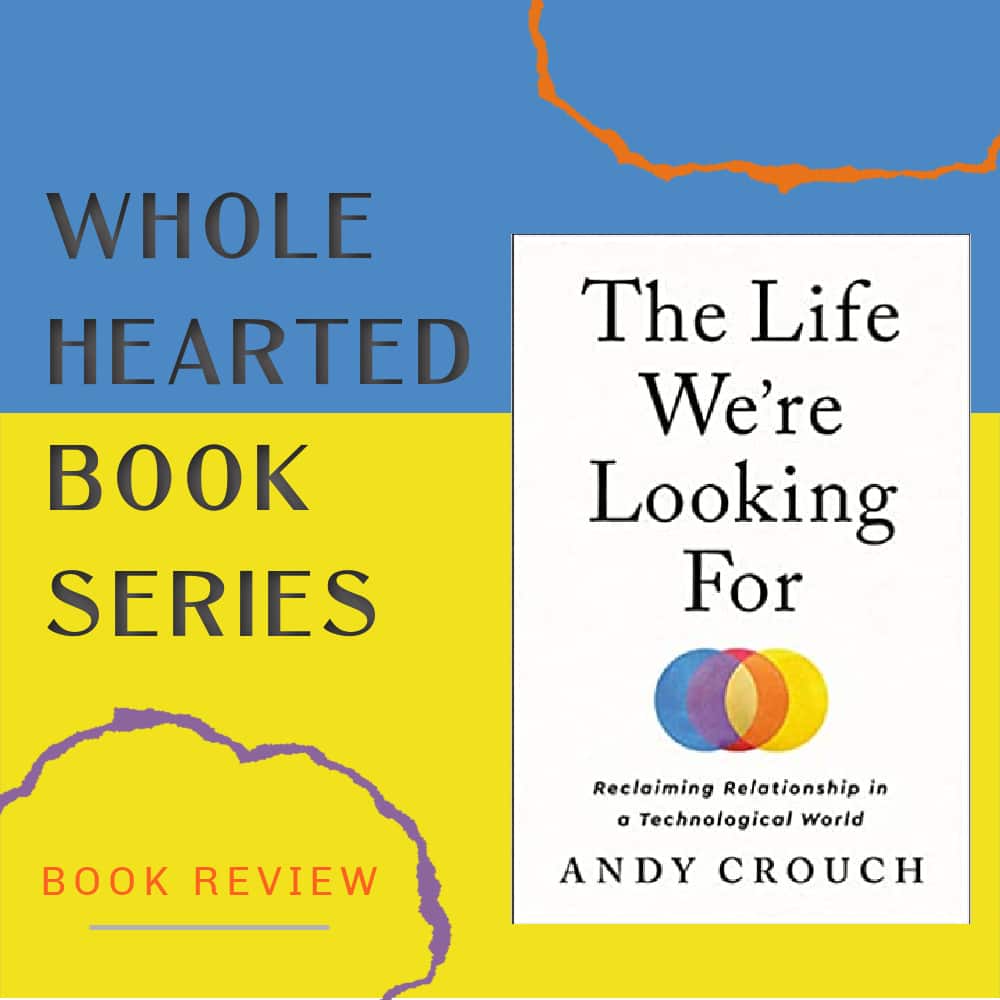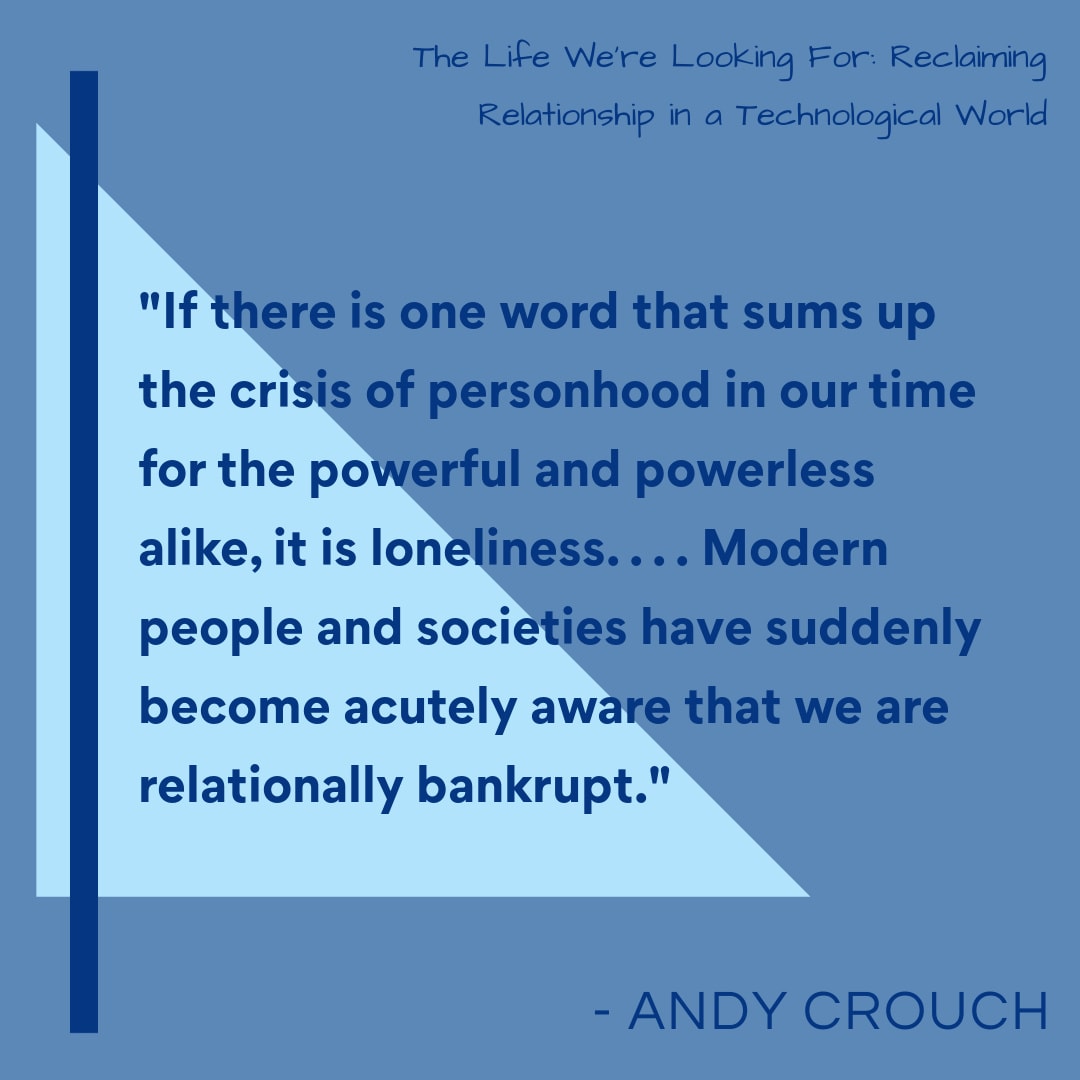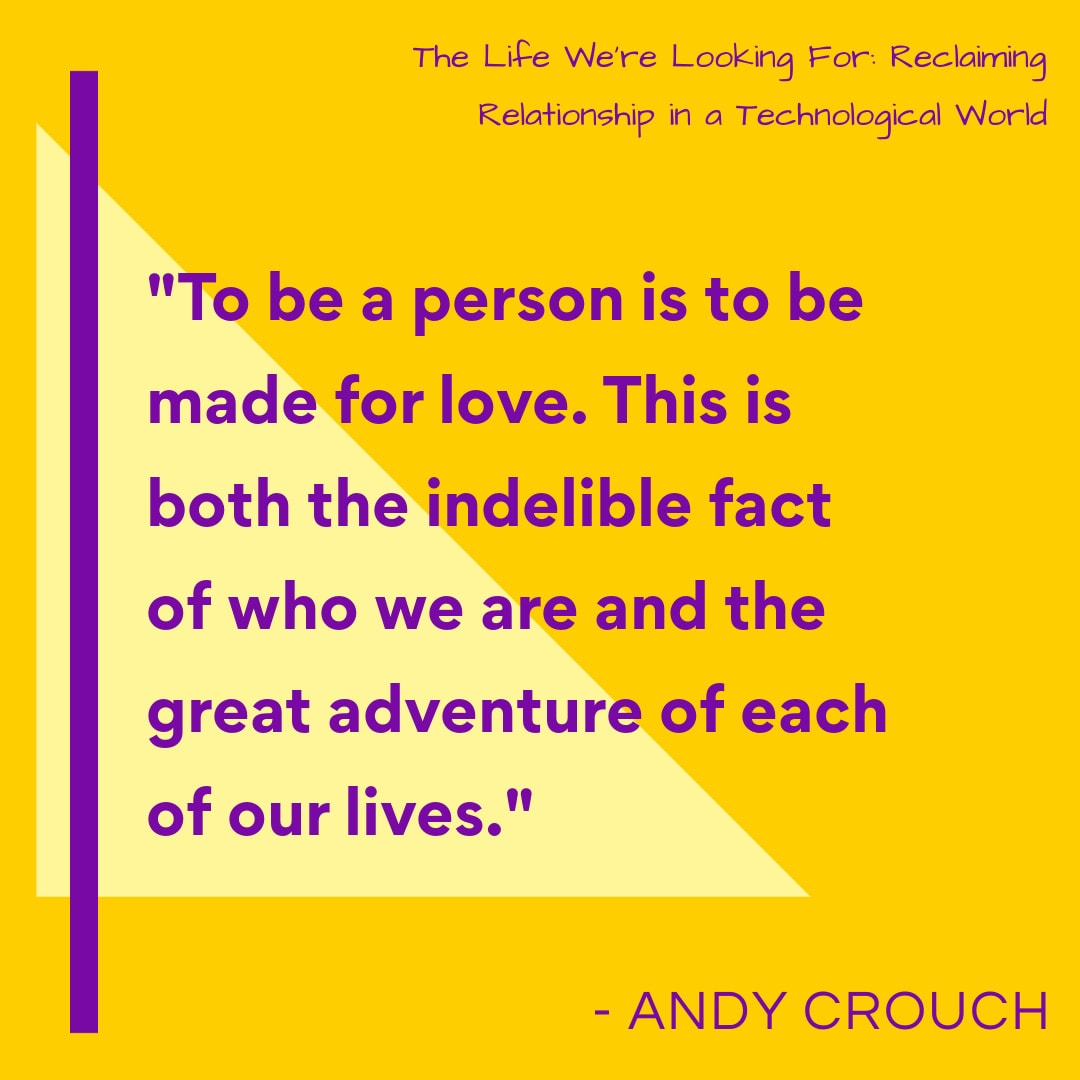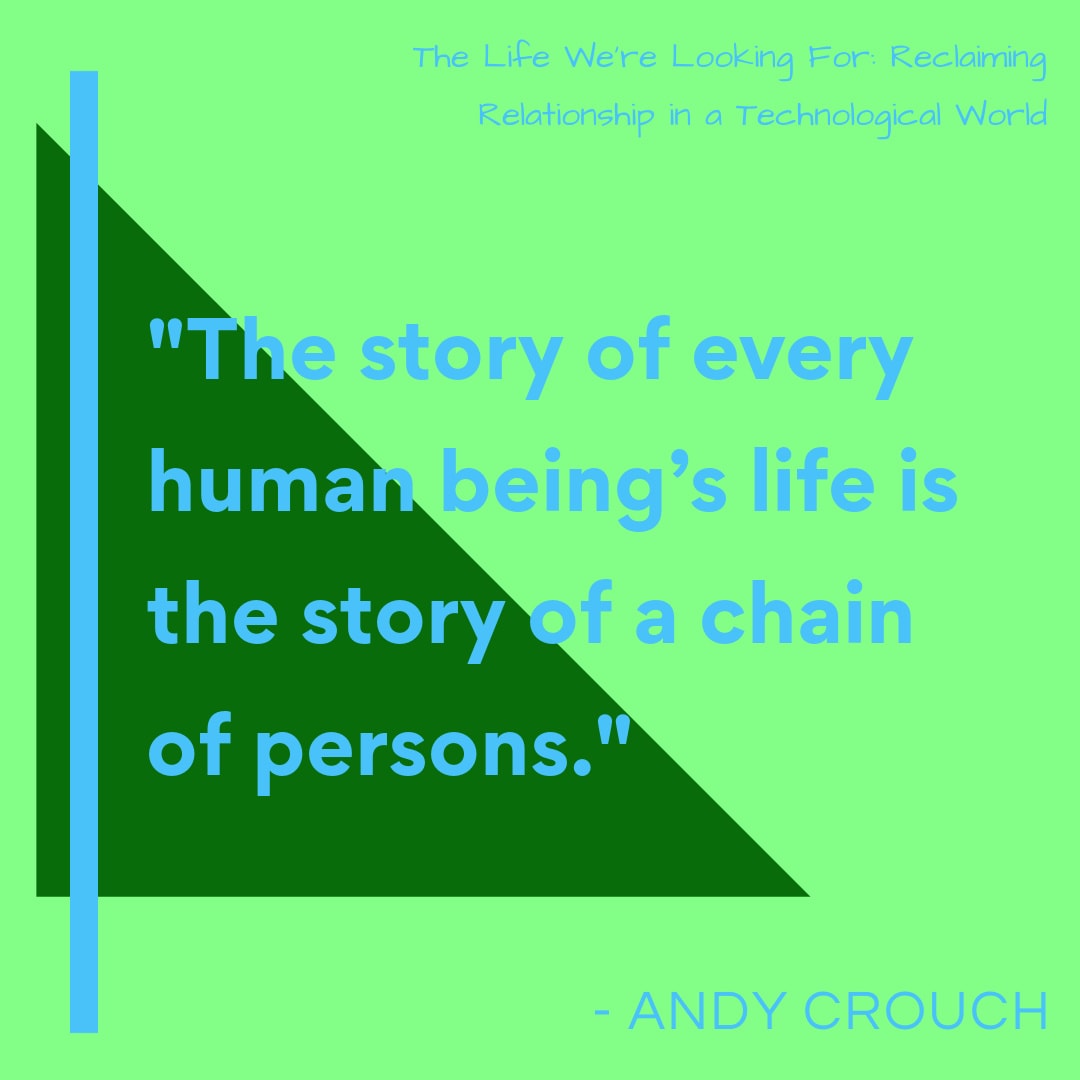You don’t need me to tell you that something is wrong with people these days. And by “people” I mean every single one of us. Despite medical advances, time-saving services, and technologies that should make our lives relatively pain-free, the innovations of the past century have not translated into enhanced human flourishing. In fact, the opposite seems to be true: even before we were all bulldozed by a global pandemic, our current generation was already experiencing unprecedented levels of anxiety, loneliness, purposelessness, and disconnection.
There is no single explanation for our societal floundering, but technology is one very obvious culprit. In The Life We’re Looking For, Andy Crouch (a theologian and cultural commentator known for his insights into the potential harm of our tech obsessions) provides an analysis of the current relational landscape: what has gone wrong, what needs to change, and where we can look for models of genuine human flourishing.

Crouch begins his book by diagnosing our big problem of loneliness. He explains that one of our most primal instincts—one of our very first quests as infants—is to be recognized. We crave recognition from our parents and caregivers as newborns, and that need to be fully seen and known never goes away. In our digital age we have fallen for the lie that technology, with all of its personalization and willingness to stay fully engaged and present with us at all times, can replace human connection. But as we’ve grown comfortable with the technology’s inexhaustible diversions, we have lost our ability to connect with other people, who unfortunately come saddled with shortcomings and neediness. This disconnection from other humans has resulted in disconnection from our very personhood.
Drawing from Biblical examples and from Jesus’ very own statements, Crouch defines a person as a “heart-soul-mind-strength complex designed for love.” We are heart (driven and drawn by desire); soul (we have a depth of self that is uniquely ours); mind (capable of reflecting on the world and of remembering, interpreting, and analyzing experiences); and strength (able to apply great energy to work and other endeavors). But most of all, “we are designed for love—primed before we were born to seek out others, wired neurologically to respond with empathy and recognition, coming most alive when we are in relationships of mutual dependence and trust. Love calls out the best in us—it awakens our hearts, it stirs up the depths of our souls, it focuses our minds, it arouses our bodies to action and passion.” Our capacity for love is the very most human thing about us, and it seems to be slipping away.

With this understanding of what it means to be a person, we can see how personhood has been lost. Our quest for superhuman power has forced us to relinquish natural personhood; our desire for unending pleasure has stolen our ability to experience all natural pleasure; a craving for independence has rendered us incapable of depending on one another or having others depend on us. The age-old ambition to be gods has caused us to forfeit our souls.
The situation is indeed dire. Thankfully Crouch offers us a way out using a principles exemplified within the early church.
Crouch’s first proposed solution is to shift from using technology as a device to using it as an instrument. The distinction here is that devices are barely indistinguishable from magic, doing their work without asking very much of us; devices eventually replace the human beings who use them. Conversely, instruments simply extend our capacities by further developing our hearts, souls, minds, and strength. It is up to us to choose how we will use our phones, computers, or other technology: we can stop allowing these to replace us and simply allow them to be extensions of us.

The second solution is to shift from existing as families to functioning within households, defined by Crouch as “communities of persons who may well take shelter under one roof but also and more fundamentally take shelter under one another’s care and concern. They provide for one another, and they depend on one another. They mingle their assets and their liabilities, their gifts and their vulnerabilities, in such a way that it is hard to tell where one member’s end and another member’s begin.” Whereas families may extend beyond households and function independently from one another, households are interdependent and foster community, trust, belonging, and a greater sense of obligation and purpose.
Finally, Couch proposes that we cease viewing ourselves as charmed and instead recognize that we are blessed. “To be charmed is to be magically held apart from harm, endowed for a time with a bubble of prosperity and power.” Blessing does not free us from harm, but it is also not arbitrary or unpredictable (qualities of being charmed). Those who see themselves as charmed have elevated themselves above others; but those who recognized they are blessed are able to love “the charmless, the uncharmed and uncharming” and are freed of the addiction to things that make the world seem charmed, the “all-too-easy superpowers that leave us anxious and empty.”

These shifts may seem small, but if Crouch is right (and I believe he just might be) they have the potential to bring us back to our personhood. We can shift away from disconnection and loneliness and anxiety and towards genuine flourishing. We rediscover the life we are looking for, the life we were made for.
While the ideas presented in this book are huge ones, this is a relatively easy read with actionable advice, engaging anecdotes, and some important reframes that I loved. In particular, there are a couple of powerful illustrations relating to the way we view others that I will absolutely be keeping with me for years to come. This was a great addition to my lineup of Wholehearted books for 2022, and it’s a book I’ll be recommending to many in my life.
My Book Rating: 5 Stars!